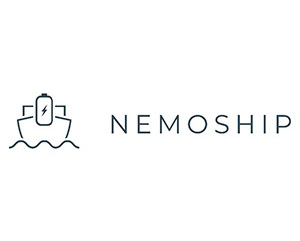NEMOSHIP
The project:
The ambition of the NEMOSHIP project is to develop, test and demonstrate new innovative technologies, methodologies and guidelines in order to better optimise large battery electric power within hybrid and fully electric ships. The project will act as a key enabler for the new co-programmed European Partnership Zero Emission Waterborne Transport (ZEWT) roadmap to reach IMO objectives about reduction of GHG emissions from waterborne transport by 2030 and 2050. Our consortium reviewed during the meeting the outcomes planned to reach this ambition:
– Demonstrate these innovations at TRL 7 maturity for hybrid ships and their adaptability for full electric ships thanks to a hybrid Offshore Service Vessel (diesel/electric propulsion), a hybrid cruise vessel (LNG/electric propulsion), and a semi-virtual demonstration for two additional full-electric vessels such as ferries and short-sea shipping.
CIDETEC’s role in the project:
Cidetec will contribute with their knowledge on lessons learnt from decisions in other mature markets such as mobility and stationary applications, so as to take advantage of the strengths in those markets.
Cidetec will develop of a SW (tool) for dimensioning the battery system (the algorithms code will be in black box mode) and their knowledge on EMS strategies, predictive maintenance and diagnostic approaches.
Cidetec will adapt the BMS algorithms providing SoX and thermal data for an efficient use of the batteries.

Start: 01 | 01 | 2023
End: 30 | 12 | 2026
Budget: 11.284.796 €
EU Grant: 7.870.260 €
Corvus Energy
CIDETEC Energy Storage
Elkon
Equinor
In Extenso Innovation Croissance
Ponant
SDI
Siemens Software
Solstad Offshore
CEA
VUB
Financiator
Sectors
- Marine
Technological fields
- There are no technological fields












